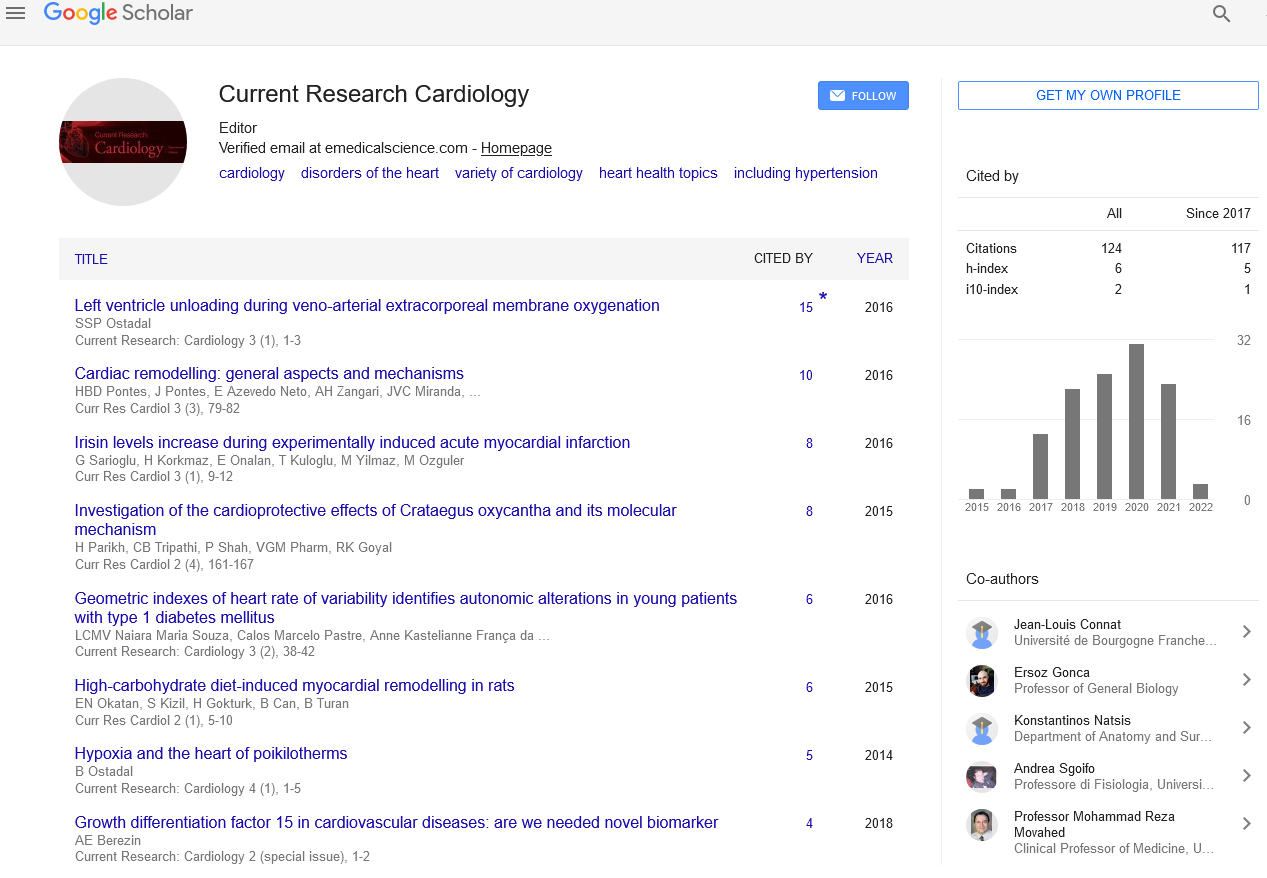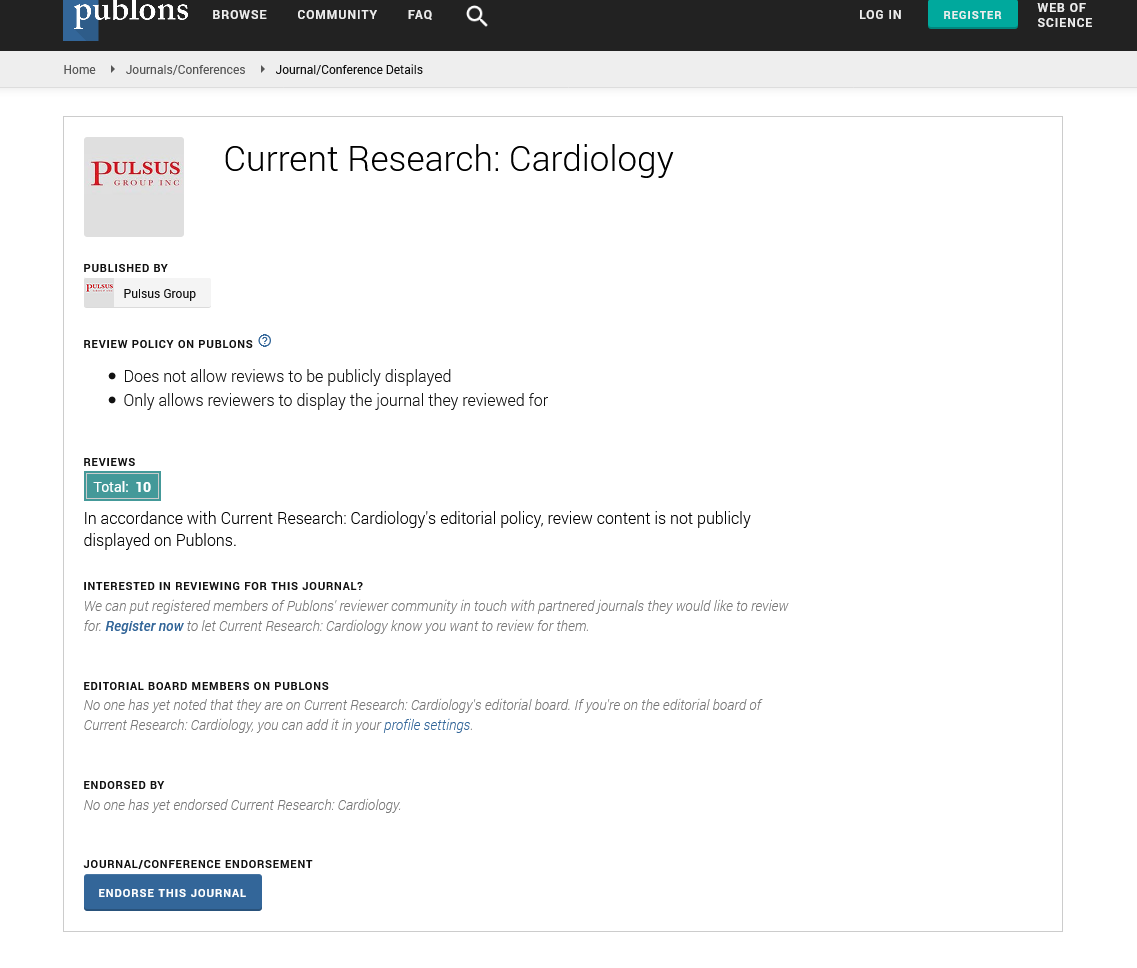
Sign up for email alert when new content gets added: Sign up
Abstract
Assessment of diastolic wall strain in heart failure patients with mid-range ejection fraction
Author(s): Mona A. ELSaidy, MD*, Mohamed A. Abdalaal, MD, and Ayman A. Elsheikh, MDBackground: Diastolic wall strain (DWS), is a new marker for determining diastolic function and has been used as a marker of abnormal mechanics of the heart.
Aim of the work: To determine the feasibility and reproducibility of measuring DWS in heart failure mid-range ejection fraction and compare it to the other groups of Heart Failure (HF), and to define its relation with other parameters determining cardiac structure and function.
Methods: 624 HF were classified into 3 groups according to the Ejection Fraction (EF): group 1 included 209 patients with reduced EF, group 2; 150 patients with mid-range EF, and group 3, 265 patients with preserved EF. They were compared to 30 normals, group 4. Full echocardiographic examination of systolic and diastolic indices was performed. DWS was measured as follows: {posterior systolic wall thickness (PWs)-posterior wall diastolic thickness (PWd)}/PWs.
Results: DWs was significantly lower in HF groups as compared to normal subjects; 0.21 ± 0.02, 0.24 ± 0.026 and 0.32 ± 0.03, in groups 1, 2 and 3 respectively, while it was 0.4 ± 0.02 in the control group, p<0.0001. It correlated significantly with Myocardial Performance Index (MPI), r=-0.81, p<0.0001, global radial strain, r=0.72, p<0.0001 and E/e', r=-0.66, p<0.001.
Conclusion: Measurement of DWS is feasible and reproducible in HF patients. It was significantly low in HF patients, and appears to reflect overall myocardial performance.
Full-Text | PDF





